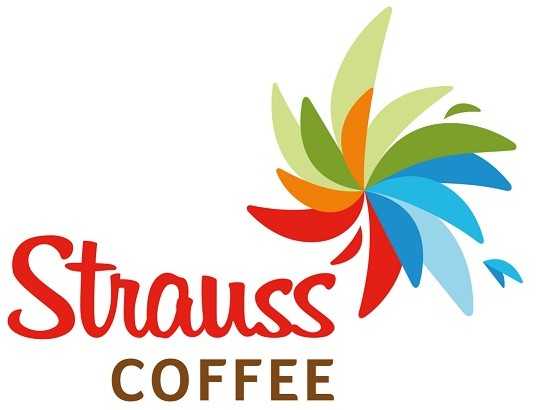MILAN – Israeli food producer Strauss Group reported a 13.6 percent rise in fourth-quarter net profit, boosted by growth in its home market and by its coffee business in Brazil. The company earned an adjusted NIS 87 million (US$24 million)in October-December, up from 77 million a year earlier.
The company also reported NIS 8.6 billion (US$2.39 billion) in revenue for the year and 4.8% organic growth excluding foreign currency effects. Growth stemmed from higher sales in all group subsidiaries. In the fourth quarter, the Group’s revenue was NIS 2.2 billion and organic growth was 2.5%.
Strauss Group gross profit in 2018 of NIS 3.3 billion (US$916 million), reflecting a gross profit margin of 38.0% compared to a gross profit margin of 36.7% in 2017. The Group’s operating profit (EBIT) was NIS 865 million (US$240 million), up 10.9% compared to last year and reflecting an operating profit margin of 10.1%, versus an operating profit margin of 9.2% in 2017.
These results are due to an increase in operating profit in all of the Group’s business operations: Sabra-Obela, Strauss Water, Strauss Coffee and Strauss Israel. Net income attributable to the Company’s shareholders was NIS 489 million (US135.7 million), an increase of 17.8%.
Giora Bardea, President & CEO of Strauss Group, referred to the company’s results:
“2018 presented Strauss Group with managerial and business challenges. The company made numerous changes in its management team while dealing, among other things, with rising input and raw material prices; for example, the price of raw milk. The Group’s robustness and its diversified business portfolio – in terms of both products and geographical spread – have enabled it to successfully face these challenges and deliver outstanding results. The impressive growth in profit margins was achieved thanks to focus, product innovation and consistent efficiency enhancements.
“The coffee business in Brazil continued to serve as a significant growth driver as sales volumes continued to increase and the company delivered strong results; Strauss Water’s business continued to post impressive sales figures, with 9.2% sales growth. The water business in China focused on online sales.”
Strauss Coffee
In 2018 organic growth of the coffee operation in domestic currency was 3.1%, with sales rising to NIS 4.0 billion and mainly reflecting growth in sales volumes in Brazil and Israel. In the fourth quarter sales by the coffee company fell 6.1 percent from a year earlier to 1.02 billion shekels (US$283 million) due to mainly to foreign exchange effects including the appreciation of the shekel against the Brazilian real and the rouble.
Operating profit in 2018 was NIS 418 million (US$116 million), up 6.2%, and the operating profit margin was 10.6%, an increase of 1% compared to last year.
Strauss Coffee’s operation in Israel grew 4.8% in the year to NIS 737 million. Activities focused on the launch of additional and stronger flavors in coffee capsules, launch of the Platinum brand and the BeanZ business – fresh coffee beans from farmers around the world with a grinding machine to deliver a fresh coffee experience at home.
In 2018 the coffee business in Brazil continued to break records. The income of Três Corações – Brazil’s largest coffee company and a joint venture owned by Strauss Group and São Miguel Holding e Investimentos S.A. – amounted to NIS 2.0 billion (reflecting 50%) in 2018, up 7.3% in domestic currency. However, the appreciation of the shekel against the Brazilian real had a negative effect of NIS 256 million. At the end of December, the company’s market share was 27.3% of the Brazilian coffee market, compared to 25.8% in the corresponding period in 2017.
Most of the growth was the result of an increase in sales quantities of roast and ground (R&G) coffee. The company in Brazil also markets and distributes coffee capsules and machines under the TRES brand. In April 2018 Três Corações acquired the activity of Tapajós Indústria de Café Ltda, retail coffee brands Manaus, Tapajós and Betânia as well as additional products in the R&G category in northern Brazil for approximately NIS 23 million (reflecting 100%).
Domestic currency sales in Russia and Ukraine dropped by 5.9% in 2018, mainly as a result of challenging trade conditions, and amounted to NIS 574 million. Exchange differences – appreciation of the shekel against the Russian ruble and the Ukrainian hryvnia – reduced the company’s revenues by NIS 36 million.
Sales in Poland amounted to NIS 305 million, similar to the corresponding period last year, but eroded 3.8% in domestic currency. Romania sales in 2018 totaled NIS 221 million, similar to the corresponding period last year; in Serbia, sales increased by 7.6% to NIS 151 million, mainly as a result of positive currency translations of the Serbian dinar into shekels.


















